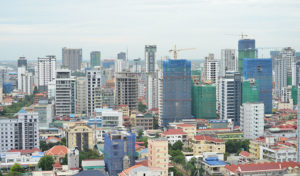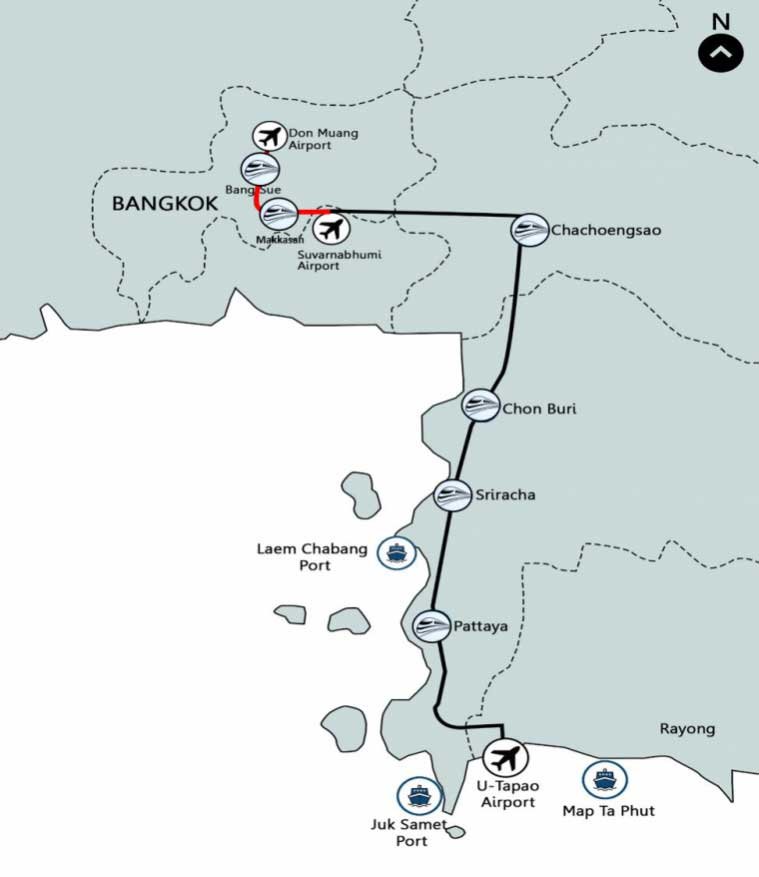
Phnom Penh’s construction heralds dramatic increase
Construction projects in the capital city of Phnom Penh have dramatically increased, leading to the expansion of the city and its suburbs.
Prime Minister Hun Sen in stating this yesterday added the capital has expanded by more than 400 square kilometers from the earlier 300,000 square kilometers.
Speaking at the inauguration ceremony of the new office building for the Ministry of Land Management, Urban Planning and Construction, the premier said “The density of the building in Phnom Penh before was one hectare with 5,000 square metres of building, but now one hectare has expanded 10 folds to 50,000 square metres of building.
Conceding that all development projects will put pressure on the environment, Mr Hun Sen said that development master plans and efficient land use have to be given serious thought to make the capital a living and livable city.
According to the Ministry of Land Management, Cambodia’s rapid economic growth in the past years has accelerated urban growth in and around Phnom Penh.
Phnom Penh is now a modern metropolis dominated by skyscrapers and surrounded by satellite cities which has morphed from a city once dominated by gravel roads, low-rise and colonial buildings.
An increasing number of high rise buildings, comprising mixed use development which houses residential, commercial and office complexes to high rise condominiums can now be seen all round the city and its suburbs.
Once hailed, the ‘Pearl of Asia’, Phnom Penh is fast regaining its lustre having developed to become the nation’s economic, commercial, cultural and tourist centre.
Despite the pandemic which has led to Phnom Penh’s construction and real estate market seeing more than its share of disruption in the past 2 years, development projects are still springing up.
Despite difficulties, several iconic and popular projects announced prior to the pandemic are soon coming online.
The real estate sector, a robust sector in Cambodia for local and foreign investment, used to enjoy rapid development. Foreigners and locals were buying, selling, and renting buildings, houses, apartments, and office space at a rapid pace.
However, Covid-19 has put a halt to some new construction projects due to investors’ lack of confidence to invest. Consequently, the growth of the construction sector has become slow, leading to the decline in real estate demands for housing and investment.
Looking at high rising buildings, expressways, and major infrastructure development in Cambodia over the past decade, the government immensely endorsed and channelled foreign direct investment toward the construction sector. Before 2020, more than 50% of the total foreign direct investment in Cambodia focused on the construction sector.
Source: https://www.khmertimeskh.com/50967134/phnom-penhs-construction-heralds-dramatic-increase/

